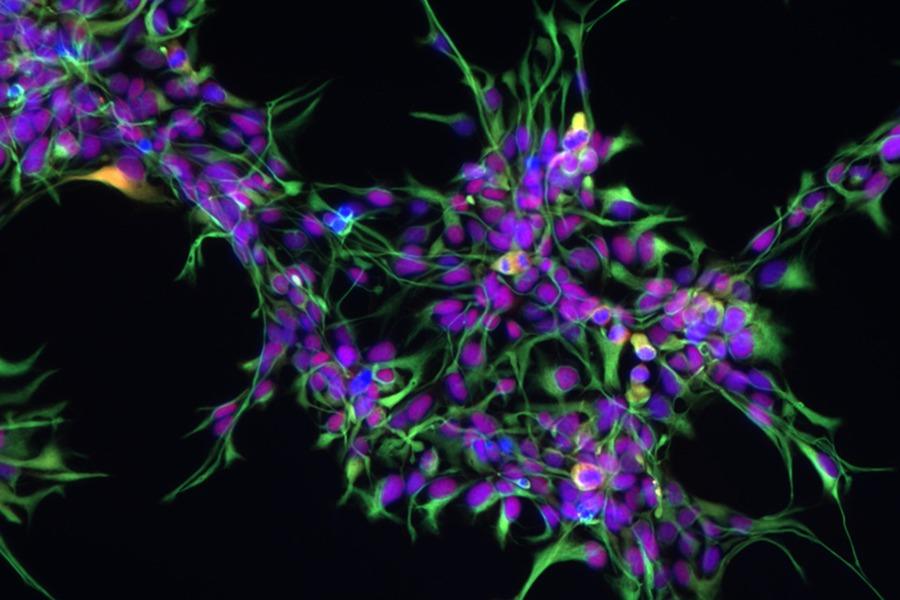Scientists from the Łukasiewicz Research Network – PORT Polish Center for Technology Development in Wrocław have developed standardized research protocols (SOPs) that enable reproducible and comparable modeling of psychiatric disorders at the cellular and behavioral levels across different institutions. This represents a step toward objective diagnostic tests for depression, schizophrenia, and post-traumatic stress disorder (PTSD), which in the future may revolutionize clinical practice and personalized psychiatric therapy.
At the Łukasiewicz – PORT laboratories, research begins by reprogramming skin or blood cells into induced pluripotent stem cells (iPSCs) that retain the patient’s genetic material. These cells are then transformed into neurons, astrocytes, or brain organoids—three-dimensional “mini-brains” that allow studying brain development and disease mechanisms under laboratory conditions. This approach enables, among other applications, investigating communication disorders between neurons in depression and schizophrenia and analyzing the role of genes that control stress responses.

Organoid, or mini-brain, grown in the Laboratory of Neurodegeneration Mechanisms Research Group at Łukasiewicz – PORT. Photo credit: Łukasiewicz – PORT]
In in vivo studies, scientists focus on analyzing the impact of social stress on the behavior and brains of laboratory animals. The use of artificial intelligence allows objective and rapid identification of depression symptoms, enabling more precise testing of antidepressant drug efficacy.
The effectiveness and reproducibility of the protocols developed at Łukasiewicz – PORT have been confirmed by project partners—Erasmus University Medical Center in Rotterdam, the Max Planck Institute of Psychiatry in Munich, and the ICM Institute for Brain and Spinal Cord in Paris.






